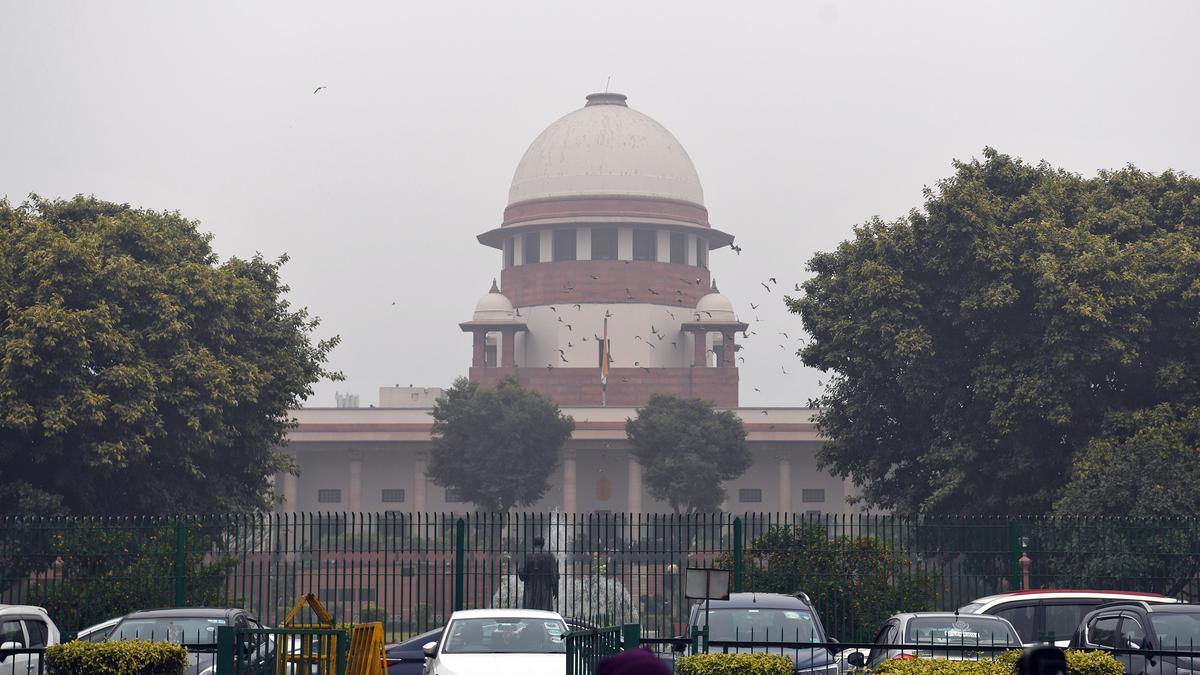
SC notice to CBI on Jharkhand govt. plea in Sahibganj illegal mining case
The Hindu
The Supreme Court on May 3 allowed CBI investigation into allegations of illegal mining in Sahibganj district of Jharkhand by Pankaj Mishra, a “close associate” of former Chief Minister Hemant Soren, and others to continue.
The Supreme Court on May 3 allowed CBI investigation into allegations of illegal mining in Sahibganj district of Jharkhand by Pankaj Mishra, a “close associate” of former Chief Minister Hemant Soren, and others to continue.
However, a Bench headed by Justice Sanjiv Khanna said the chargesheet, if any, should be retained in a sealed cover till the next date of hearing in the Supreme Court on July 18.
The apex court issued notice to the CBI and complainant, Bijay Hansda, on the petition filed by the Jharkhand government.
The State government, represented by senior advocate Kapil Sibal and advocate Jayant Mohan, had assailed a High Court order of February 23, 2024 which allowed CBI to register an FIR in the illegal mining case.
The State said the High Court, on February 23, erroneously interpreted an August 18, 2023 order of a coordinate Bench, which had directed the CBI to only conduct a.”preliminary enquiry into the conduct of the accused persons,including the petitioner (Bijay Hansda) as he has sought to withdraw the writ petition”.
The State argued that the August 18 order had not directed the CBI to go ahead and investigate and register an FIR. In fact, the State argued, the High Court had sought a preliminary enquiry into allegations on August 18 as it had been unclear whether the case was exceptional to even warrant a transfer to the CBI.
Besides, the Jharkhand government argued that registration of an FIR by CBI would require mandatory and prior consent from the State under Section 6 of the Delhi Police Special Establishment Act. The government said the State Police had separately investigated the allegations and filed a closure report in the trial court in October 2023.

“Writing, in general, is a very solitary process,” says Yauvanika Chopra, Associate Director at The New India Foundation (NIF), which, earlier this year, announced the 12th edition of its NIF Book Fellowships for research and scholarship about Indian history after Independence. While authors, in general, are built for it, it can still get very lonely, says Chopra, pointing out that the fellowship’s community support is as valuable as the monetary benefits it offers. “There is a solid community of NIF fellows, trustees, language experts, jury members, all of whom are incredibly competent,” she says. “They really help make authors feel supported from manuscript to publication, so you never feel like you’re struggling through isolation.”

Several principals of government and private schools in Delhi on Tuesday said the Directorate of Education (DoE) circular from a day earlier, directing schools to conduct classes in ‘hybrid’ mode, had caused confusion regarding day-to-day operations as they did not know how many students would return to school from Wednesday and how would teachers instruct in two modes — online and in person — at once. The DoE circular on Monday had also stated that the option to “exercise online mode of education, wherever available, shall vest with the students and their guardians”. Several schoolteachers also expressed confusion regarding the DoE order. A government schoolteacher said he was unsure of how to cope with the resumption of physical classes, given that the order directing government offices to ensure that 50% of the employees work from home is still in place. On Monday, the Commission for Air Quality Management in the National Capital Region and Adjoining Areas (CAQM) had, on the orders of the Supreme Court, directed schools in Delhi-NCR to shift classes to the hybrid mode, following which the DoE had issued the circular. The court had urged the Centre’s pollution watchdog to consider restarting physical classes due to many students missing out on the mid-day meals and lacking the necessary means to attend classes online. The CAQM had, on November 20, asked schools in Delhi-NCR to shift to the online mode of teaching.









